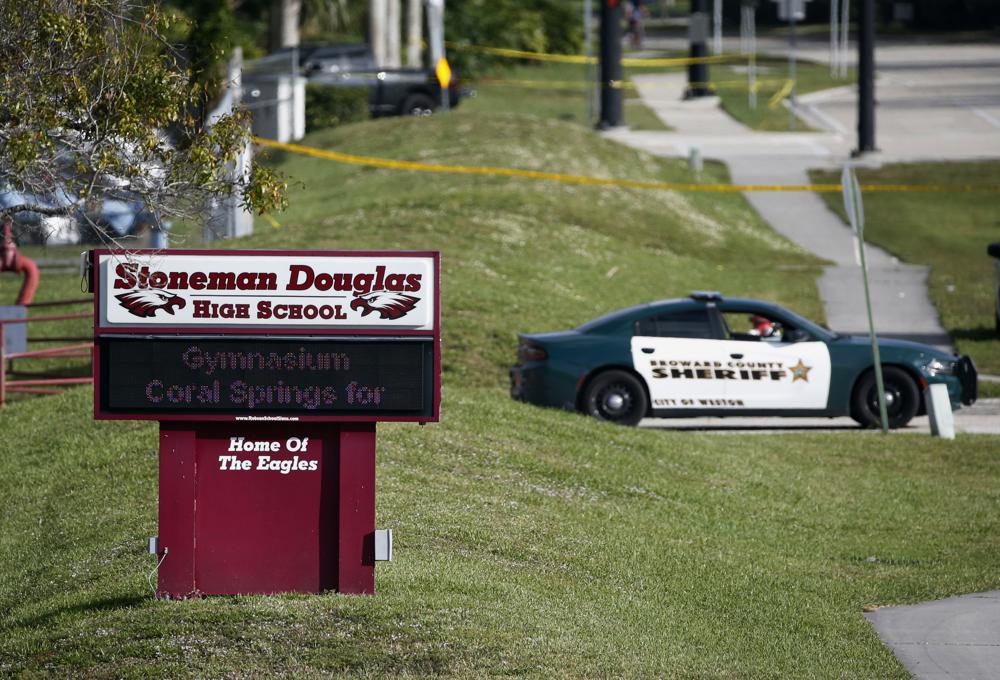PARKLAND
On February 14, 2018, a gunman shot and killed 17 people at Marjory Stoneman Douglas high school in Parkland, Florida. In the aftermath of the tragedy, there was a public outcry to do more to protect our kids.
Just weeks after the shooting, the Marjory Stoneman Douglas High School Public Safety Act (MSD) was signed into law. It set the stage for gun law reform in Florida.
“It’s five years since Alex was shot, but today is just like any other day for us, where we don’t have Alex in our life, and it’s a huge hole that all of us are left trying to deal with the best we can,” Max Schachter said.
Schachter’s son Alex is one of the 17 victims murdered in the Parkland school shooting. The father is still grieving and still fighting for change.
Max Schachter. (Credit: WINK News)
“After this happened, my grief and my anger pushed me forward every day,” he said.
Schachter is the founder and executive director of Safe Schools for Alex 501(c)(3). He sparked a wave of bipartisan legislation after the tragedy, helping pass the MSD Public Safety Act 23 days after the shooting.
“When have you heard legislation change anywhere, within three weeks,” said Eric Garner, teacher at Marjory Stoneman Douglas.
Garner has taught at the school for 16 years. On the day of the shooting, 54 students hid in his classroom.
“A lot of it is still active, still alive in my brain,” he said.
The MSD Public Safety Act:
Prompted red flag laws, which allow police or family members to ask the court to take away someone’s firearms if they feel that person is a threat.
Authorizes a law enforcement officer who is taking a person into custody for an involuntary examination under the Baker Act to seize and hold a firearm or ammunition in the person’s possession and to seek the voluntary surrender of other firearms or ammunition kept in the residence.
Allows a court to issue a risk protection order for up to 12 months and requires the surrender of all firearms and ammunition if a risk protection order is issued.
Provides a process for a risk protection order to be vacated or extended by the court.
Prohibits a person under 21 years of age from purchasing a firearm and a licensed firearm dealer, importer, and manufacturer, from selling a firearm, except in the case of a member of the military, or a law enforcement or correctional officer when purchasing a rifle or shotgun.
Created the guardian program, which allows some teachers and administrators to be armed
Permits a sheriff to establish a Coach Aaron Feis Guardian Program to aid in the prevention or abatement of active assailant incidents on school premises.
Requires each district school board and school district superintendent to cooperate with law enforcement agencies to assign one or more safe-school officers at each school facility.
[READ MORE: https://www.flsenate.gov/Committees/billsummaries/2018/html/1886]
“We have implemented 64 pages of school safety measures over the last five years, and we are constantly working on it, constantly improving because we know that these murderers are studying and researching the last tragedy, so we have to constantly adapt as well,” Schachter said.
In 2019, the Federal School Safety Clearinghouse was created inside the Department of Homeland Security. Schachter took 15 trips to Washington D.C. and had 150 meetings with members of Congress and the White House to make that happen.
In 2021, he launched the School Safety Dashboard. It requires school administrators to report all acts of violence and monitor those involved. It eventually expanded to other states, including Kentucky, Pennsylvania, and New Hampshire Schools. Schachter is now working on expanding the program to schools nationwide.
[READ MORE: https://www.safeschoolsforalex.org/our-team/]
Garner also has had the opportunity to advocate for change. But, he credits his students for the rapid reform in 2018.
“I am going to trace back to March for Our Lives,” he said. “Most of the March for Our Lives students had come out of my classroom. They had a voice. And they wanted to use that voice for legislation, for making their world safer.”
WINK NEWS

